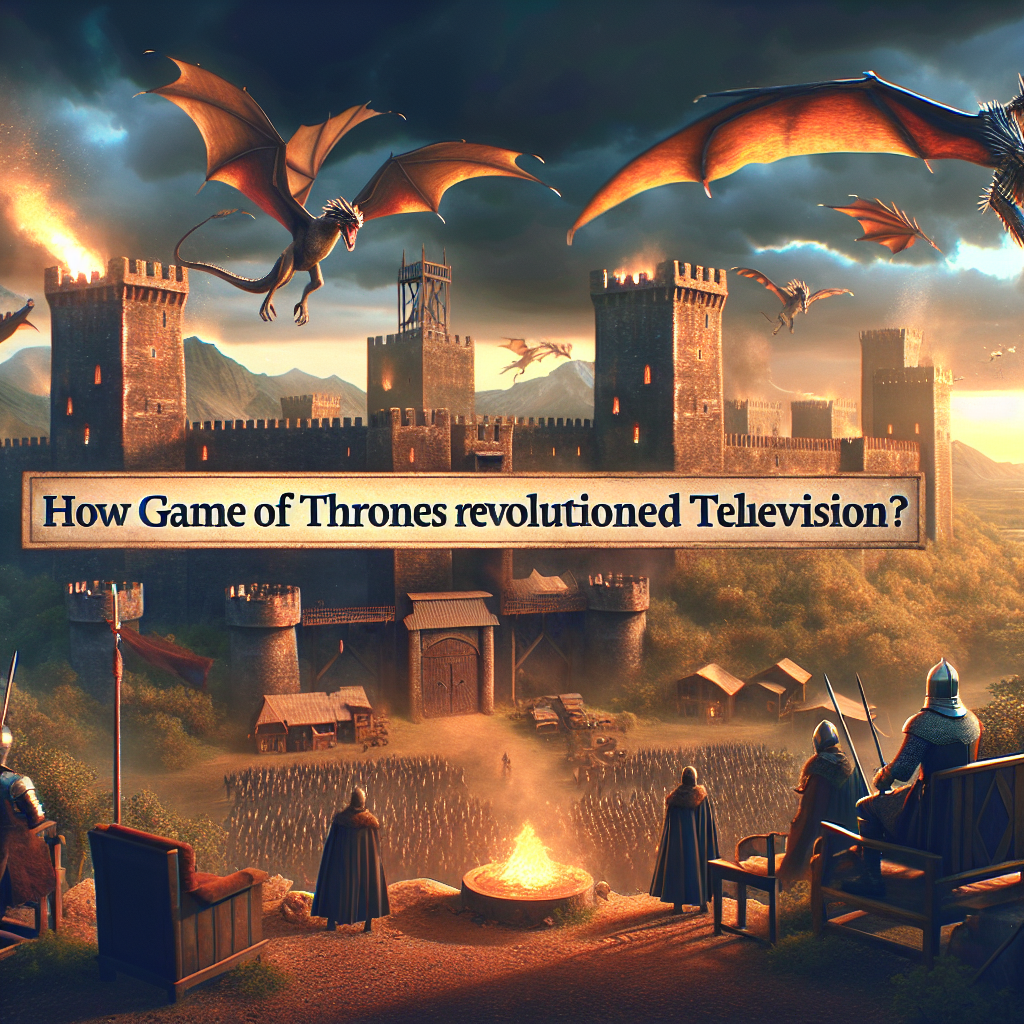#Game #Thrones #Revolutionized #Television
[ad_1]
How Game of Thrones Revolutionized Television
Game of Thrones, based on the “A Song of Ice and Fire” novels by George R.R. Martin, is a fantasy drama television series that aired on HBO from 2011 to 2019. The show quickly gained a massive following and became a cultural phenomenon, revolutionizing the way we view and consume television. Here are some of the ways Game of Thrones changed the television landscape:
Complex Characters and Storylines
One of the most significant ways Game of Thrones revolutionized television is through its complex characters and storylines. The show featured a large ensemble cast, including characters with morally ambiguous motivations and intricate relationships. It was rare to see such depth and complexity in characters on television before Game of Thrones, and it set a new standard for character development and storytelling in the medium.
High Production Value
Game of Thrones also set a new standard for high production value in television. The show’s stunning visuals, elaborate costumes, and epic battle scenes were unlike anything seen before on the small screen. The attention to detail and cinematic quality of the production helped elevate Game of Thrones to a level usually reserved for big-budget films, and it raised the bar for what audiences expect from television shows.
Global Impact
Game of Thrones had a global impact, reaching audiences around the world and spawning a massive fanbase. The show’s popularity transcended traditional television viewing, with fans gathering at watch parties, discussing the latest episodes on social media, and even traveling to filming locations to experience the world of Westeros firsthand. The series became a cultural phenomenon, influencing everything from fashion and language to tourism and politics.
Breaking Traditional Tropes
Game of Thrones broke traditional television tropes and storytelling conventions. The show wasn’t afraid to kill off major characters, defy audience expectations, and challenge moral and ethical boundaries. This willingness to take risks and subvert genre norms kept viewers on the edge of their seats and made Game of Thrones a groundbreaking and unpredictable viewing experience.
Legacy and Influence
Even though Game of Thrones has ended, its impact on television continues to be felt. The show paved the way for other epic fantasy series, such as The Witcher and The Mandalorian, and it inspired a new generation of filmmakers and storytellers to push the boundaries of what can be achieved on television. The influence of Game of Thrones will likely be felt for years to come.
Summary
Game of Thrones revolutionized television in numerous ways, from its complex characters and high production value to its global impact and legacy. The show challenged traditional television tropes and storytelling conventions, setting a new standard for epic storytelling on the small screen. Its influence on the television landscape is undeniable, and it will be remembered as a groundbreaking and game-changing series.
FAQs
Q: Why was Game of Thrones so influential?
A: Game of Thrones was influential for its complex characters, high production value, global impact, and willingness to break traditional television tropes.
Q: What is the legacy of Game of Thrones?
A: The legacy of Game of Thrones includes its impact on the television industry, its influence on other epic fantasy series, and its inspiration for future filmmakers and storytellers.
Q: How did Game of Thrones change the way we view television?
A: Game of Thrones raised the bar for what audiences expect from television shows, offering a cinematic quality and epic storytelling that was previously reserved for big-budget films.
1706865676
[ad_2]
